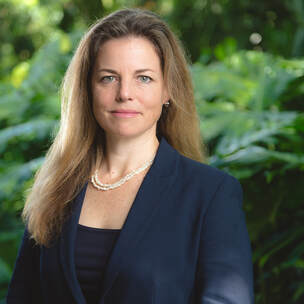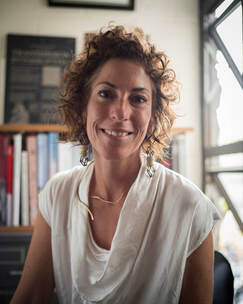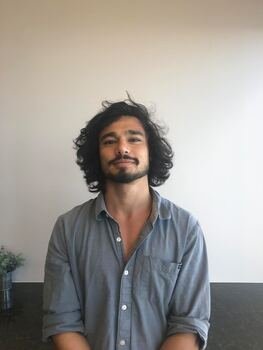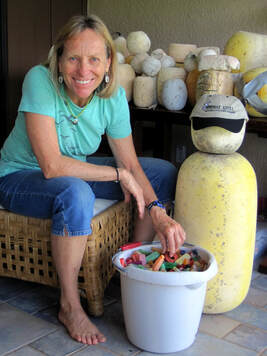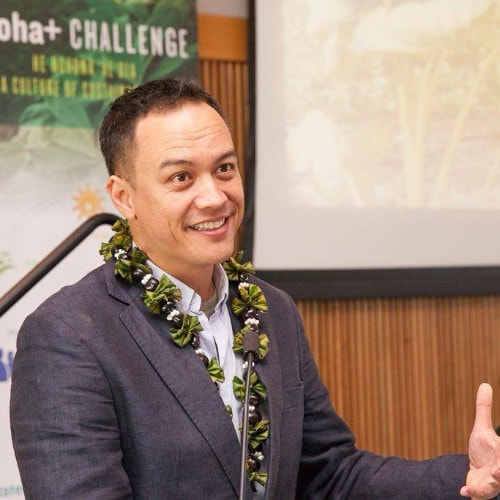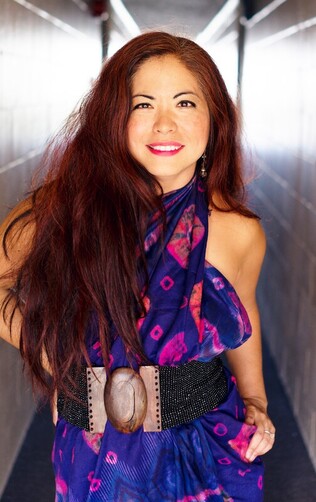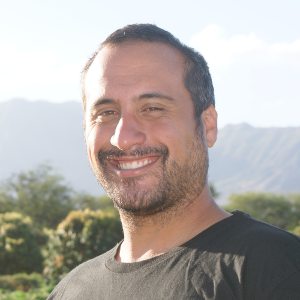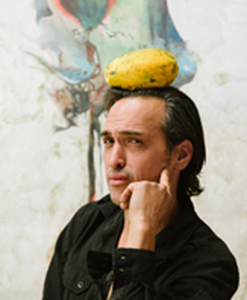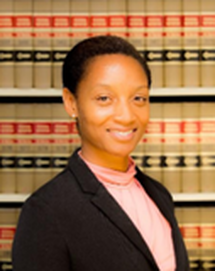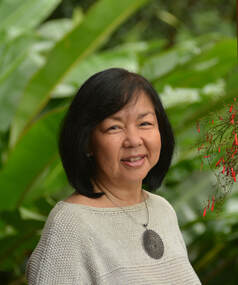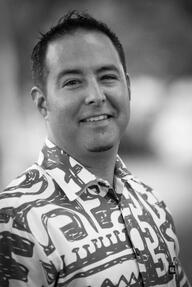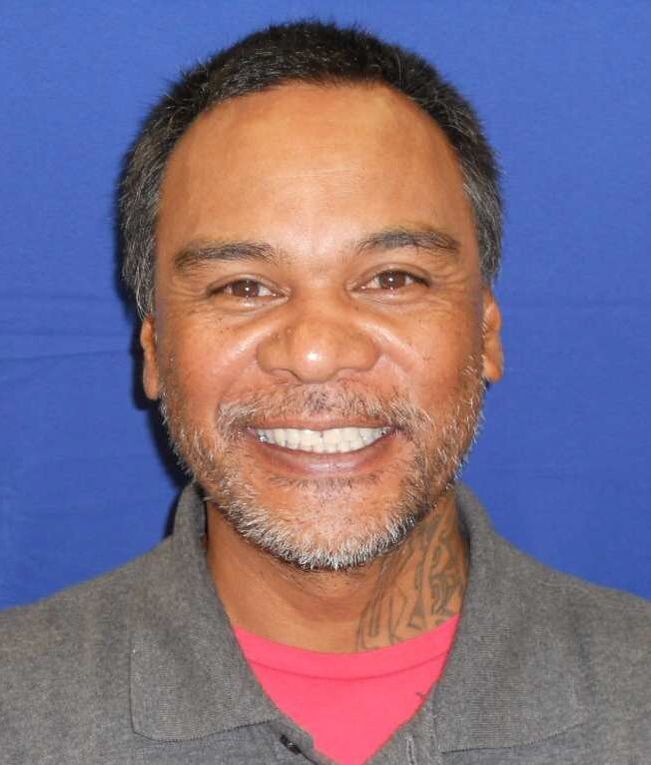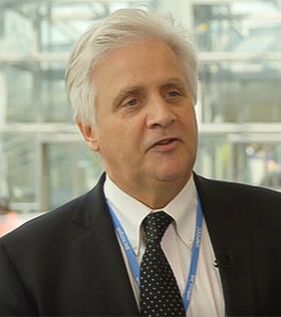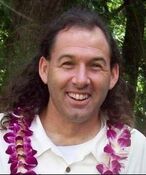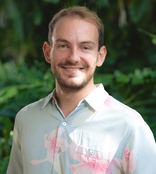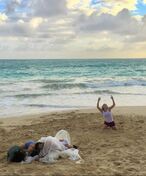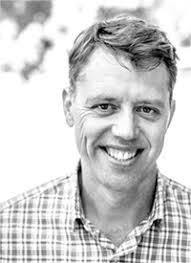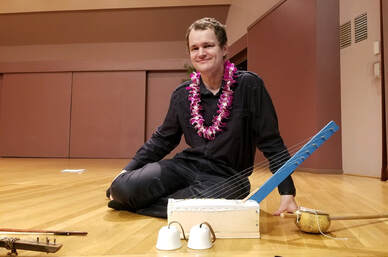Jan 27 Greenhouse gasses: Understanding your carbon footprint
Description:
This session kicks off the Road to Regeneration by showing the importance of an individual commitment to environmental health. Centered around the impact of personal choices, this session emphasizes the role of the individual in the collective fight against environmental deterioration. Seemingly insignificant individual actions compound into larger issues, so it is important for each person to take ownership of and internalize this goal of sustainability and regeneration.
Goals and Objectives:
Presenter: Celeste Connors
Celeste Connors has twenty years of experience working at the intersection of economic, environment, energy, and international development policy. Before joining Hawai‘i Green Growth, she was CEO and co-founder of cdots development LLC, which works to build resilient infrastructure and services in vulnerable communities. Celeste previously served as the Director for Environment and Climate Change at the National Security Council and National Economic Council in the White House where she helped shape the Administration’s climate and energy policies. Prior to joining the White House, Celeste served as a diplomat in Saudi Arabia, Greece, and Germany. She also held positions at the U.S. Mission to the UN, served as the Climate and Energy Advisor to the Under Secretary for Democracy and Global Affairs at the U.S. Department of State, and worked for City of New York.
Celeste served as faculty at the Johns Hopkins University School of Advanced International Studies (SAIS) in the Energy, Resources and Environment Program. She holds an MSc in Development Studies from the University of London’s School of Oriental and African Studies (SOAS) and a BA in International Relations from Tufts University. Celeste serves on the board of Hawaiian Electric Industries, the Global Island Partnership (GLISPA) and America’s Service Commission, and is a Term Member on the Council on Foreign Relations. Celeste grew up in Kailua, O‘ahu.
Performer: Jaimey Faris
Jaimey Hamilton Faris is Associate Professor of Contemporary Art History and Critical Theory at the University of Hawai‘i, Mānoa. She writes about new visual approaches to global systems, infrastructure and ecologies. Her current book project, Liquid Archives Liquid Futures: Representing the Climate in Transition Times, explores the visual culture of climate change. She is also organizing a parallel exhibition called Inundation: Art and Climate Change in the Pacific for UHM Art Gallery.
This session kicks off the Road to Regeneration by showing the importance of an individual commitment to environmental health. Centered around the impact of personal choices, this session emphasizes the role of the individual in the collective fight against environmental deterioration. Seemingly insignificant individual actions compound into larger issues, so it is important for each person to take ownership of and internalize this goal of sustainability and regeneration.
Goals and Objectives:
- Learn the composition of a carbon footprint
- Discuss why our carbon footprint matters
- Explore individual actions that help reduce your carbon footprint
Presenter: Celeste Connors
Celeste Connors has twenty years of experience working at the intersection of economic, environment, energy, and international development policy. Before joining Hawai‘i Green Growth, she was CEO and co-founder of cdots development LLC, which works to build resilient infrastructure and services in vulnerable communities. Celeste previously served as the Director for Environment and Climate Change at the National Security Council and National Economic Council in the White House where she helped shape the Administration’s climate and energy policies. Prior to joining the White House, Celeste served as a diplomat in Saudi Arabia, Greece, and Germany. She also held positions at the U.S. Mission to the UN, served as the Climate and Energy Advisor to the Under Secretary for Democracy and Global Affairs at the U.S. Department of State, and worked for City of New York.
Celeste served as faculty at the Johns Hopkins University School of Advanced International Studies (SAIS) in the Energy, Resources and Environment Program. She holds an MSc in Development Studies from the University of London’s School of Oriental and African Studies (SOAS) and a BA in International Relations from Tufts University. Celeste serves on the board of Hawaiian Electric Industries, the Global Island Partnership (GLISPA) and America’s Service Commission, and is a Term Member on the Council on Foreign Relations. Celeste grew up in Kailua, O‘ahu.
Performer: Jaimey Faris
Jaimey Hamilton Faris is Associate Professor of Contemporary Art History and Critical Theory at the University of Hawai‘i, Mānoa. She writes about new visual approaches to global systems, infrastructure and ecologies. Her current book project, Liquid Archives Liquid Futures: Representing the Climate in Transition Times, explores the visual culture of climate change. She is also organizing a parallel exhibition called Inundation: Art and Climate Change in the Pacific for UHM Art Gallery.
Feb 3 Creative Waste: Transforming trash to treasure
Description:
How can we change our perception of waste? Waste is not just a by product of your kitchen, wardrobe or dinner table. In this session we will explore how waste is generated by the products you purchase before you even leave the store and what you can do about it. We will also look at the individual and community benefits of reusing trash from saving money to reducing landfill and lowering energy use. We will have the opportunity to view our trash with a new critical lens, and shift our focus from waste to repurposing and reusing. Your trash can become your treasure with a slight change in perception.
Goals and Objectives:
Presenter: Navin Tagore-Erwin
Navin Tagore-Erwin holds a B.S. in Natural Resources and Environmental Management from the University of Hawaiʻi at Mānoa. He has worked with waste reduction since he was in high school, but in 2017 he began to focus on local waste issues while working for the UH Office of Sustainability. He helped facilitate UH Mānoa's 2017 waste audit as well as Windward Community College's 2019 waste audit. Navin is currently working at Windward Community College as a Kupu Sustainability Vista.
Performer: Susan Scott
A former registered nurse, Susan Scott earned a bachelor’s degree in biology from the University of Hawai`i in 1985 and is a graduate of the university’s Marine Option Program, where she specialized in marine science journalism. Since 1987, Susan has written a weekly column called “Ocean Watch” for the Honolulu Star-Advertiser and has worked as a volunteer for the U.S. Fish and Wildlife Service since 1989. It was during her work in the Papahanaumokuakea Marine National Monument in 2003 that Susan began making art from plastic items she found in seabird colonies and on remote beaches. She has written nine books about nature in Hawai`i.
How can we change our perception of waste? Waste is not just a by product of your kitchen, wardrobe or dinner table. In this session we will explore how waste is generated by the products you purchase before you even leave the store and what you can do about it. We will also look at the individual and community benefits of reusing trash from saving money to reducing landfill and lowering energy use. We will have the opportunity to view our trash with a new critical lens, and shift our focus from waste to repurposing and reusing. Your trash can become your treasure with a slight change in perception.
Goals and Objectives:
- Understand the basic waste lifecycle, including some of the biggest issues of waste (plastic & food)
- Explore individual consumption and waste habits
- Gain practical tools to help reduce and reuse waste
Presenter: Navin Tagore-Erwin
Navin Tagore-Erwin holds a B.S. in Natural Resources and Environmental Management from the University of Hawaiʻi at Mānoa. He has worked with waste reduction since he was in high school, but in 2017 he began to focus on local waste issues while working for the UH Office of Sustainability. He helped facilitate UH Mānoa's 2017 waste audit as well as Windward Community College's 2019 waste audit. Navin is currently working at Windward Community College as a Kupu Sustainability Vista.
Performer: Susan Scott
A former registered nurse, Susan Scott earned a bachelor’s degree in biology from the University of Hawai`i in 1985 and is a graduate of the university’s Marine Option Program, where she specialized in marine science journalism. Since 1987, Susan has written a weekly column called “Ocean Watch” for the Honolulu Star-Advertiser and has worked as a volunteer for the U.S. Fish and Wildlife Service since 1989. It was during her work in the Papahanaumokuakea Marine National Monument in 2003 that Susan began making art from plastic items she found in seabird colonies and on remote beaches. She has written nine books about nature in Hawai`i.
Left: Navin Tagore-Erwin; Right: Susan Scott
Feb 10 Permaculture: designing integrative whole system environments
Description:
Permaculture integrates land, resources, people and the environment through mutually beneficial synergies – imitating the no waste, closed loop systems seen in diverse natural systems. Permaculture studies and applies holistic solutions that are applicable in rural and urban contexts at any scale. Permaculture design is a system of assembling conceptual, material, and strategic components in a pattern which functions to benefit life in all its forms
Goals and Objectives:
Presenter 1: Matthew Lynch
Matthew Kamakani Lynch is the Director of Sustainability Initiatives for the ten campuses of the University of Hawai'i System. He currently serves as a teaching faculty on Harvard's Executive Education for Sustainability Leadership program, as well as Chairperson of the Board of Directors for Kahumana Organic Farm - a social enterprise working at the nexus of transitional housing, mental health and regenerative farming to build healthy communities on O'ahu . Matt’s work is focused upon 1) creating conditions to catalyze institutional transformation; 2) developing new business models which restore ecological systems and planetary life support systems that our existing business models have so badly damage; and 3) creating authentic human connections and beauty in the face of accelerating environmental degradation, technological advances and social unrest.
Presenter 2: Christian Zuckerman
Performer : Ruth Foster
Ruth is a well-rounded pianist, ukulele player, vocalist, songwriter and educator who applies fresh, integrated approaches when teaching music. Ruth was the songwriting teaching artist for Kalikolehua, a non-profit whose mission was to give musical experiences to under-privileged youth. Ruth was also the music director of the locally written, “Dragonfly,” a hard-hitting musical about growing up as a foster child in Hawai'i. Ruth performs regularly at venues in Honolulu, including Chuck’s Cellar, Medici’s and MARKS Garage. As a cross-discipline artist with deep experience in musical performance, songwriting, photography, copywriting, video production and handbag design, Ruth understands that the power of expression lies not in the medium, but beneath it, in the artist's voice.
Permaculture integrates land, resources, people and the environment through mutually beneficial synergies – imitating the no waste, closed loop systems seen in diverse natural systems. Permaculture studies and applies holistic solutions that are applicable in rural and urban contexts at any scale. Permaculture design is a system of assembling conceptual, material, and strategic components in a pattern which functions to benefit life in all its forms
Goals and Objectives:
- Gain insight into the philosophy behind permaculture: one of working with, nature; using systems in all their functions
- Discuss creative solutions for generating sustainable environments that meet human needs
Presenter 1: Matthew Lynch
Matthew Kamakani Lynch is the Director of Sustainability Initiatives for the ten campuses of the University of Hawai'i System. He currently serves as a teaching faculty on Harvard's Executive Education for Sustainability Leadership program, as well as Chairperson of the Board of Directors for Kahumana Organic Farm - a social enterprise working at the nexus of transitional housing, mental health and regenerative farming to build healthy communities on O'ahu . Matt’s work is focused upon 1) creating conditions to catalyze institutional transformation; 2) developing new business models which restore ecological systems and planetary life support systems that our existing business models have so badly damage; and 3) creating authentic human connections and beauty in the face of accelerating environmental degradation, technological advances and social unrest.
Presenter 2: Christian Zuckerman
Performer : Ruth Foster
Ruth is a well-rounded pianist, ukulele player, vocalist, songwriter and educator who applies fresh, integrated approaches when teaching music. Ruth was the songwriting teaching artist for Kalikolehua, a non-profit whose mission was to give musical experiences to under-privileged youth. Ruth was also the music director of the locally written, “Dragonfly,” a hard-hitting musical about growing up as a foster child in Hawai'i. Ruth performs regularly at venues in Honolulu, including Chuck’s Cellar, Medici’s and MARKS Garage. As a cross-discipline artist with deep experience in musical performance, songwriting, photography, copywriting, video production and handbag design, Ruth understands that the power of expression lies not in the medium, but beneath it, in the artist's voice.
Left: Matthew Lynch; Right: Ruth Foster
Feb 24 Island Food Security: Building adaptive food systems
Description:
The food security of many nations are at risk as a result of changing climates. Rising sea levels place island nations at a much higher risk. How does improving food security increase island resiliency in the face of globalization and climate change? In this talk, we will explore various ways individuals, communities, and islands can build resiliency by embracing indigeneous practices to combat climate change.
Goals and Objectives:
Presenter: Kamuela Enos
Kamuela Joseph Nui Enos and Solomon Robert Nui Enos are brothers, both born and raised in Waianae, on the island of O‘ahu. They come from a family of cultural practitioners and farmers committed to sustainable agriculture. Their father, Eric Enos, is an accomplished artist and cultural practitioner who has been active in the community for more than 40 years.
Kamuela, an innovator and visionary, has an undergraduate degree in Hawaiian Studies and a M.A in Urban and Regional Planning from the University of Hawai‘i at Manoa. He served as the Director of Social Enterprise at MA`O Organic Farms for 11 years before serving as the inaugural director of the new Office of Indigenous Innovation at the University of Hawai‘i at Manoa.
Performer: Solomon Enos
Solomon, an artist, adept at artistic expression in a wide variety of media including oil paintings, book illustrations, outdoor murals (both painted and in glass mosaic), and mixed-media sculptures. His work touches on themes of ancestry and identity, the human relationship with the earth, and the future of Hawai‘i, its people, and its resources. Solomon has exhibited in Culture Labs (Smithsonian Asian Pacific American Center), Biennial X (Honolulu Museum of Art), 6th Asia Pacific Triennial of Contemporary Art (Queensland Art Gallery), among others.
The food security of many nations are at risk as a result of changing climates. Rising sea levels place island nations at a much higher risk. How does improving food security increase island resiliency in the face of globalization and climate change? In this talk, we will explore various ways individuals, communities, and islands can build resiliency by embracing indigeneous practices to combat climate change.
Goals and Objectives:
- Identify actions individuals can take to improve food security for themselves, their communities, and their islands.
- Discuss how increasing food security will increase resiliency in the face of climate change
- Receive a seedling they can plant to begin building their own food security
Presenter: Kamuela Enos
Kamuela Joseph Nui Enos and Solomon Robert Nui Enos are brothers, both born and raised in Waianae, on the island of O‘ahu. They come from a family of cultural practitioners and farmers committed to sustainable agriculture. Their father, Eric Enos, is an accomplished artist and cultural practitioner who has been active in the community for more than 40 years.
Kamuela, an innovator and visionary, has an undergraduate degree in Hawaiian Studies and a M.A in Urban and Regional Planning from the University of Hawai‘i at Manoa. He served as the Director of Social Enterprise at MA`O Organic Farms for 11 years before serving as the inaugural director of the new Office of Indigenous Innovation at the University of Hawai‘i at Manoa.
Performer: Solomon Enos
Solomon, an artist, adept at artistic expression in a wide variety of media including oil paintings, book illustrations, outdoor murals (both painted and in glass mosaic), and mixed-media sculptures. His work touches on themes of ancestry and identity, the human relationship with the earth, and the future of Hawai‘i, its people, and its resources. Solomon has exhibited in Culture Labs (Smithsonian Asian Pacific American Center), Biennial X (Honolulu Museum of Art), 6th Asia Pacific Triennial of Contemporary Art (Queensland Art Gallery), among others.
Right: Kamuela Enos; Left: Solomon Enos
Mar 2 Energy & Technology: Discovering innovative solutions
Description:
Past technologies and energy demands have played a large role in creating the current environmental problems, but new technologies can play an important role in solving them. This session takes a hopeful look at the intersection of energy, technology, and sustainability. Exciting new sustainable technologies work to reduce waste while maintaining efficiency and in this session we will hear from some leaders in this field.
Goals and Objectives:
- Learn about new sustainable technology innovations
- Understand the role of energy and technology in the environmental arena
- Gain hope for the future
Presenter 1: Rachel James (moderator)
Rachel James is an environmental and energy attorney, currently serving on the Commission Counsel team at the Hawaii State Public Utilities Commission. Prior to becoming an attorney, Rachel worked with Holu Hou Energy as a Business Development Manager right after finishing her employment with the Hawai‘i Center for Advanced Transportation Technologies (HCATT) as a Project Manager, a position she enjoyed following her service as the Senior Regional Representative in a local Congressional office. As an Energy Justice Program Fellow, Rachel has engaged in community energy planning on the neighbor islands and has authored award-winning research on community-based approaches to the development of renewable energy. Rachel is a graduate of the William S. Richardson School of Law, where she earned certificates in Native Hawaiian Law and Environmental Law.
Presenter 2: Kelly King
Kelly King is Vice President of Pacific Biodiesel Technologies, LLC, a renewable energy company she co-founded with her husband Robert King in 1995. Well known as an industry pioneer, Pacific Biodiesel was created to alleviate the disposal of waste cooking oil at Maui’s landfill and became the first commercial biodiesel company in the U.S. Pacific Biodiesel has built 13 biodiesel plants in the U.S. and Japan and its community-based biodiesel model has become a standard for the sustainable renewable fuel industry. Kelly helped Pacific Biodiesel obtain and manage a Congressional appropriation project in collaboration with the U.S. DoD to test biodiesel fuel crops in Hawaii. She also worked to secure federal funding to develop a value-added by-product that holds great promise as a soil amendment for taro farmers. Today the company is marketing a retail line of beauty oils made from local waste agriculture and cooking vegetable oils (wholesale and retail) pressed from its Maui sunflower crop and Big Island macadamia nuts.
Presenter 3: Brandon Hayashi
Brandon is the Hawai‘i Regional Business Development Manager for ENGIE Services U.S. where he leads a dedicated and collaborative team implementing comprehensive clean energy and resilience solutions across our Islands. Born and raised in Kāne‘ohe, on the island of O‘ahu, Brandon has spent more than six years studying on, working in, and visiting other islands in the Pacific (Aotearoa New Zealand, Fiji), Asia (Japan, Singapore), and Europe (England, Ireland, Sicilia, Sardegna). These experiences have left indelible impressions that continue to inform his approach in life, and awakened him to the significant challenges that many islanders face stemming from climate crisis impacts, which are further compounded by food and water security issues, habitat and species destruction, lack of economic diversity, high costs of living, limited educational opportunities, and overall island infrastructure resilience. Through his professional, personal, and community commitments, Brandon is focused on taking action on the climate crisis through carbon-neutral, culturally-relevant, and cost-effective solutions.
In addition to his professional work, Brandon is a recently-trained member of the Climate Reality Leadership Corps, a member of the Honolulu Japanese Chamber of Commerce's Managing Climate Change Committee, a board of trustees member for the Public Schools of Hawai'i Foundation, and continues to serve on the City & County of Honolulu's climate change mitigation working group that contributed to the 2019 O‘ahu Resilience Strategy. He was the former president of the Rebuild Hawai‘i Consortium, past co-chair of the energy efficiency working group at the Hawai‘i Energy Policy Forum, and previous board of directors member and energy challenge co-chair at Kanu Hawai‘i.
Presenter 4: Henry Gabriel
Henry Gabriel is the Recycling Branch Chief for the City and County of Honolulu. He’s responsible for managing the City’s recycling programs to include curbside recycling, Opala.org, recycling contracts, public education and outreach. His passion is garbage. He lives his life as a solid waste coordinator at home. He’s well verse in green waste and food waste composting. Reduce, reuse, recycling, refuse and recovery is his way of life.
Henry has a degree in Civil Engineering. In California, he’s worked at recycling and composting facility. On O‘ahu, he’s worked as a planning engineer for the City on the wastewater side. Everything and anything to do with waste, Henry is that guy.
Left to Right: Rachel James, Kelly King, Brandon Hayashi, Henry Gabriel
Mar 9 sustainable policies: Achieving global goals
Description:
This session will explore how government and private-sector institutions can cooperate and contribute to achieving the UN’s global Sustainable Development Goals (SDGs). Speakers will highlight Hawaii’s local programs to address sustainability challenges, emphasizing island cultures and values, and propose these as a model for larger-scale initiatives.
Goals and Objectives:
Presenter 1: Trigg Talley
Trigg Talley is a member of the U.S. Government Senior Executive Service and has served in various roles as a diplomat and negotiator of environment agreements since 1995. In his most recent post, Talley served as chief negotiator and led the official US delegation through several rounds of negotiations under the UN Framework Convention on Climate Change and the Paris Agreement. He serves as the US focal point for the Intergovernmental Panel on Climate Change, manages the State Department’s program portfolio on climate-related foreign assistance, and oversees US government diplomatic engagement on climate-related issues where they arise in other contexts, including the G7, G20, Arctic Council, APEC. and others. In the Research Program, Talley will be predominantly working with Victoria Keener and the Pacific RISA team and will examine and engage in Hawaii’s state- and local-level implementation efforts on clean energy, resilience, and other environmental goals. He will also be engaging with countries and experts in the Asia-Pacific Region on sustainability issues and will be working with the Hawaii Green Growth initiative as it launches a new global island platform for enhancing island sustainability efforts.
Presenter 2: Joshua Cooper
Joshua Cooper is an academic, advocate, author, analyst and activist based in Hawaii. Cooper has created, crafted and coordinated four dozen unique courses in Political Science, Journalism and Peace Studies drafting and delivering curriculum for over 100 plus classes in two decades at the University of Hawaii. Cooper has taught for 20 years and is currently Dean of Research at the International Training Center for Teaching Peace and Human Rights in Geneva, Switzerland and Dean of INNES International Human and Peoples Rights in Vienna, Austria. Cooper has lectured worldwide at graduate programs and law clinics as well as presented over 100 papers featuring original research. Cooper speaks regularly at the UN and NGO assembles to contribute to public policy making to realize human rights.
Presenter 3: Julius Fischer
Julius Fischer is Hawaiʻi Green Growth’s Project Manager for the Sustainability Dashboard and the Sustainability Business Forum. Before joining HGG, he worked for the Hawaiʻi State Senate Transportation and Energy Committee. Previously, he was a Fellow for the Global Island Partnership (GLISPA), a voluntary partnership of islands across the globe that catalyzes action on resilient and sustainable island communities by mobilizing high-level political leadership. Born and raised in Germany, he has lived in New Zealand, Japan, and Micronesia. Julius holds a BA in International Relations and BS in Earth Systems from Stanford University, and a Master in Environmental Management from the Yale School of Forestry and Environmental Studies.
Performer: Converge Dance Theatre
Convergence Dance Theatre (CDT) is made up of diverse voices and choreographic styles formed in 2003 as a co-operative dance ensemble to provide up and coming Honolulu choreographers and performing artists opportunities to create and perform original work. CDT’s focus on diversity and individuality gives each performance a spontaneous energy unique to the Oahu community. Led by artistic director Jennifer Shannon Butler and Camille Monson, CDT is a non-profit collaborative modern dance company known for thought provoking, energetic and athletic dancing. For 16 years, CDT has created and performed emotionally charged choreography with humorous and often satirical looks at personal, social and political issues. Each CDT concert presents work from various choreographers joined by a concurrent theme, always representing the collaborative spirit that fuels CDT’s passion for creating new work through process-oriented choreography.
This session will explore how government and private-sector institutions can cooperate and contribute to achieving the UN’s global Sustainable Development Goals (SDGs). Speakers will highlight Hawaii’s local programs to address sustainability challenges, emphasizing island cultures and values, and propose these as a model for larger-scale initiatives.
Goals and Objectives:
- Learn about climate policies of Hawaii, the US, and international organizations
- Explore metrics and indicators that assess the sustainability of development in a state or country
- Craft personal goals for improving our local sustainable living environment
Presenter 1: Trigg Talley
Trigg Talley is a member of the U.S. Government Senior Executive Service and has served in various roles as a diplomat and negotiator of environment agreements since 1995. In his most recent post, Talley served as chief negotiator and led the official US delegation through several rounds of negotiations under the UN Framework Convention on Climate Change and the Paris Agreement. He serves as the US focal point for the Intergovernmental Panel on Climate Change, manages the State Department’s program portfolio on climate-related foreign assistance, and oversees US government diplomatic engagement on climate-related issues where they arise in other contexts, including the G7, G20, Arctic Council, APEC. and others. In the Research Program, Talley will be predominantly working with Victoria Keener and the Pacific RISA team and will examine and engage in Hawaii’s state- and local-level implementation efforts on clean energy, resilience, and other environmental goals. He will also be engaging with countries and experts in the Asia-Pacific Region on sustainability issues and will be working with the Hawaii Green Growth initiative as it launches a new global island platform for enhancing island sustainability efforts.
Presenter 2: Joshua Cooper
Joshua Cooper is an academic, advocate, author, analyst and activist based in Hawaii. Cooper has created, crafted and coordinated four dozen unique courses in Political Science, Journalism and Peace Studies drafting and delivering curriculum for over 100 plus classes in two decades at the University of Hawaii. Cooper has taught for 20 years and is currently Dean of Research at the International Training Center for Teaching Peace and Human Rights in Geneva, Switzerland and Dean of INNES International Human and Peoples Rights in Vienna, Austria. Cooper has lectured worldwide at graduate programs and law clinics as well as presented over 100 papers featuring original research. Cooper speaks regularly at the UN and NGO assembles to contribute to public policy making to realize human rights.
Presenter 3: Julius Fischer
Julius Fischer is Hawaiʻi Green Growth’s Project Manager for the Sustainability Dashboard and the Sustainability Business Forum. Before joining HGG, he worked for the Hawaiʻi State Senate Transportation and Energy Committee. Previously, he was a Fellow for the Global Island Partnership (GLISPA), a voluntary partnership of islands across the globe that catalyzes action on resilient and sustainable island communities by mobilizing high-level political leadership. Born and raised in Germany, he has lived in New Zealand, Japan, and Micronesia. Julius holds a BA in International Relations and BS in Earth Systems from Stanford University, and a Master in Environmental Management from the Yale School of Forestry and Environmental Studies.
Performer: Converge Dance Theatre
Convergence Dance Theatre (CDT) is made up of diverse voices and choreographic styles formed in 2003 as a co-operative dance ensemble to provide up and coming Honolulu choreographers and performing artists opportunities to create and perform original work. CDT’s focus on diversity and individuality gives each performance a spontaneous energy unique to the Oahu community. Led by artistic director Jennifer Shannon Butler and Camille Monson, CDT is a non-profit collaborative modern dance company known for thought provoking, energetic and athletic dancing. For 16 years, CDT has created and performed emotionally charged choreography with humorous and often satirical looks at personal, social and political issues. Each CDT concert presents work from various choreographers joined by a concurrent theme, always representing the collaborative spirit that fuels CDT’s passion for creating new work through process-oriented choreography.
Left to Right: Trigg Tally, Joshua Cooper, Julius Fischer, Convergence Dance Theatre
Mar 23 Resilience Hubs: learning to increase community capacity
Description:
With the impacts of climate change already being felt locally, preparedness and resiliency are key steps to ensuring the longevity and sustainability of our community. Where and how do we start? Through case studies in other cities, we will learn about the Resilient Hub concept, which empowers and prepares communities for extreme events.
Goals and Objectives:
- Change perception from helplessness to empowerment in disaster situations
- Practice leadership skills for bringing a community together in preparation for a disaster
Presenter: Dan Neely
Dan Neely is the Manager of Community Resilience and the Group Recovery Manager for the Wellington Region. He has a background in community development, international aid and disaster recovery. Originally from Arizona, he knows a good taco when he sees one.
Performer: Benjamin Fairfield's Ensemble
Benjamin Fairfield received his MA and PhD in ethnomusicology from the University of Hawaiʻi at Mānoa. He was an East-West Center Graduate Degree Fellow, Peace Corps volunteer in Thailand, elementary school ukulele instructor, and lecturer at UHWO and UHM, where he most recently created a hands-on scavenging course (MUS 311) where students built their own instruments from natural and recycled items. He has collaborated with Karen scholar-musician-activist Chi Suwichan Phattanaphraiwan to translate two books and has published a handful of academic articles on Karen music in Thailand. He and his family have been invited to spend the summer of 2020 in Chiang Mai, Thailand on a Fulbright working on a Karen harp curriculum (and perhaps an album).
Left: Dan Neely; Right: Benjamin Fairfield
Mar 30 Regeneration: moving beyond sustainability to develop restorative frameworks
Description:
The future of sustainability is regeneration. Sustainable development is satisfying fundamental human needs today without compromising the possibility of future generations to satisfy theirs, the goal of regenerative design is to develop restorative systems that are dynamic and beneficial for humans and other species.
Goals and Objectives:
Presenter: To Be Announced
Performers: To Be Announced
The future of sustainability is regeneration. Sustainable development is satisfying fundamental human needs today without compromising the possibility of future generations to satisfy theirs, the goal of regenerative design is to develop restorative systems that are dynamic and beneficial for humans and other species.
Goals and Objectives:
- Develop a regenerative mindset
- Explore practicable solutions to reduce their own carbon footprint
- Inspire hope about restoring the health of our Earth through individual and community actions
Presenter: To Be Announced
Performers: To Be Announced
